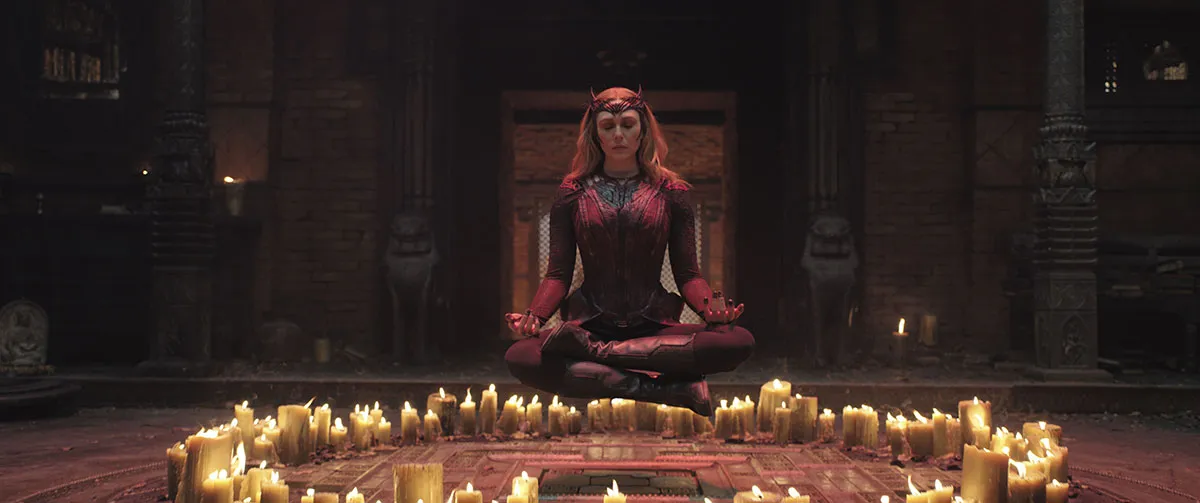In a parallel universe, you are writing this article. You’re probably doing a better job of it too. That’s what the multiverse theory suggests, anyway. You will no doubt have heard of it, if not from science then certainly from science fiction.
Star Trek, Stranger Things, Spider-Man: No Way Home – TV and film is full of stories set around the idea that our world is but one of many alternative realities. However, with the release of the new Marvel film, Doctor Strange In The Multiverse Of Madness, the theory is set to achieve new heights of popularity.
But what exactly is the multiverse? And is there any truth to the idea that in a different reality I’m actually a rich, handsome Premier League footballer?
The multiverse derives from the basic idea that beyond the grand sphere of our observable Universe are entirely different universes, distantly separated from ours. What characterises these universes is up for debate, but Richard Bower, professor of cosmology at Durham University, cites the work of fellow cosmologist Max Tegmark, who has theorised four levels of multiverse.
The first, explains Bower, posits an infinite universe in which “every possibility that could happen would happen”, including another copy of Earth. Level two, meanwhile, gives us multiverses where the basic laws of physics are the same, but fundamental constants differ. “Newton’s law of gravity would still weaken with distance,” says Bower, “but maybe there are four spatial dimensions instead of three.”
Level four goes even further, presenting multiverses that have entirely different laws of physics. “So maybe there would be some sort of mathematics that we have no idea about,” says Bower. “It could get weird.” The trailers for the new Doctor Strange movie suggest an embrace of these weirder versions of the multiverse, with one shot showing him trapped in some sort of cuboid dimension.

But of course, the most popular iteration of the multiverse is level three, the ‘many worlds’ interpretation of quantum mechanics. It states that every choice causes a split in the Universe, leading to infinite parallel realities. In popular culture, it’s the theory behind the multiple Spider-Men in Spider-Man: No Way Home.
“There are many versions of you but you’re only aware of one of those versions,” explains Bower, who cites the famous Schrödinger’s cat experiment. “You’re seeing a cat that’s either alive or dead, and you’re incapable of realising that there’s a version of you where the cat is alive. You’re just conscious of the version where the cat is dead.”
None of this has been proven, however. There are theories that if a neighbouring universe happened to collide with ours some time ago, it may have left behind proof in the form of cold or hot spots on the cosmic microwave background (electromagnetic radiation left over from the Big Bang).
Bower himself is optimistic that advances in quantum computing – which utilises properties of quantum mechanics like entanglement and superposition – could demonstrate the strength of the many worlds interpretation. But at the moment, all of this is hypothetical. In fact, many scientists believe the mystery of whether the multiverse is real to be a philosophical question rather than a scientific one.
“I don’t totally agree with my colleagues on that, because a lot of them seem to think, ‘Oh, it’s a philosophical question, and therefore we can’t try to address it scientifically’,” says Bower. “No, we just have to be more inventive about how we try to come up with ways to test it and new ways to interpret things.”
Who knows, maybe in another universe someone has already figured it all out?
- This article first appeared inissue 376ofBBC Science Focus Magazine–find out how to subscribe here
About our expert, Prof Richard Bower
Prof Richard Bower is Professor of Cosmology at Durham University. He works at the Institute for Computational Cosmology, creating a virtual Universe with some of the world’s largest computers.
Read more fromPopcorn Science: